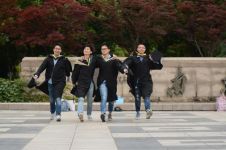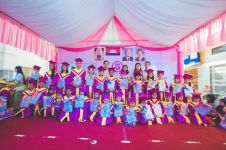优秀大学生演讲稿(4篇)
亲爱的学弟学妹们:

大家好。今天我能够站在这里向大家讲述我过去一年的经验和历程,同时能够代表09级的学生们抒发我们的心声和承诺,我感到很荣幸。
首先介绍一下我自己。我叫高x,来自临床医学系07级7班。目前的职务是院报学生记者,学生分会学习部干事,五月剧社副会长。过去两个学期做出的成绩和贡献主要在学习和写作两个方面,两次期末考试,我的学习成绩都是班里第二名,拿过一次一等奖学金和一次二等奖学金,截至目前,共五次在院报发表作品,在其他校园报刊上也经常有文章发表,在院系组织的各种征文比赛中也拿过不少奖项。另外,我还比较喜欢表演,在“英语短剧大赛”中,我们五月剧社选送的《吕布与貂蝉》以幽默生动的表演征服了全场的观众,获得第二名的好成绩,我饰演的王允一角颇受师生们的好评。
在竞争残酷的医学院里,学习永远是第一要务,尤其是临床医学系就业形势严峻,我们都背负着考研的压力,更应加倍努力,争取考研以将来获得一份比较不错的工作。就第一学期的课程而言,由于都是公共基础课,所以相对轻松,只要上课专心地听讲,跟上老师的思路,把功夫下在平时,期末考出高分拿到奖学金还是十分有可能的。就具体的科目来说,高等数学,医用物理,基础化学这些科目理解的成分更多,所以上课必须跟上老师的思路,第一遍就把知识学通学透,如果一时疏忽走神没有跟上,下课一定多学多问,以免造成知识的空白。思修,形势与政策,计算机等科目都是记忆的成分多一点,所以上课认真听课,课后若有时间就及时的复习一下前面的内容,考前下点力气背一背,也问题不大。我想强调的是英语,因为我们最后拿学位或考研,都要过英语这一关,而且英语的分数是死杠,这里通不过,其他科目分数再好也无济于事,而第一学期课程相对轻松,你们就必须把英语的基础打牢,以免将来考研时太过吃力,所以你们平时要把英语课重视起来,作业认真对待,最好提前做一下四级考试题,将来肯定受益很多。
在没有上大学之前,大学在我们的印象里是一座圣洁典雅、遥不可及的梦幻乐园。学习之余,我们经常构思着大学里的幸福图景,良师益友的畅谈宏辩,假山花圃的春意盎然,并行恋人的漫步私语,人工湖畔的徐徐暖风,多少次出现在酣然的梦中。然而,当我们真的站在大学的门前,呈现给我们的却是一座漫天黄土,遍地沙石的硕大荒园。于是,我们期待中的精彩纷呈便被大大简化,甚至简化到了每天宿舍、教室、餐厅三点一线来回奔忙。虽然心中有一点失望,但我并没有因为生活方式的枯燥单一而觉得委屈了自己,相反,溢满心头的是一种充实之后的满足和快慰。因为我明白,选择了医学就选择了这种枯燥单一,医学的博大精深要求我们必须去承受学习的苦涩的磨砺,也只有远离了那些浮华和喧嚣,我们的心灵才变得空明澄澈,一丝不乱,我们才能将那些淳厚的心志倾注于知识的沃土,才有可能去实现心中的誓言和宏愿,才有资格去做一个笃行济世的天使。而学习的道理也是朴拙平易的,只要我们精诚地努力,勤勉地付出,学习道路上的风景便会呈现给我们最最真实的美丽。
学习固然是重中之重,但大学的殿堂却实在不应该仅仅被学习所充斥,大学就是大学,大学生就应该有不一样的风采。如果跨出大学校门后我们的回忆中只有学习,这不能不说是留给青春的遗憾,这段最美好的年华应该丰盈充实,但不应暗淡无光,我们需要的是一些安恬劳碌的景致和气度。刚来潍医时,虽然硬件设施条件不是很好,但我依然尝试着将身影投向校园的每一个角落。从院报到五月剧社,从学生分会到大学生艺术团,从在红协中的演唱到在英语短剧大赛中的演出,从在院报发表第一篇文章到在各类征文比赛中屡屡获奖。在这些纳新和比赛的参与和竞争中,我不知经历了多少挫败,但在我的词典里,青春就应该轰轰烈烈,大学就应该潇潇洒洒,即使我们热切的付出没有得到应有的回报,即使我们自鸣得意的作品没有受到应有的赏识,只要我们去做了便心满意足,只要我们努力过了便无怨无悔。其实一切都没有成败可言,停止就意味着一切,努力过了便会有很好的未来。面前的机会很多很多,只是你一定要大胆地去做啊!只有这样才会为你的出色创造可能。
时光飞逝,一年的大学生活在弹指之间倏然飞去。回首走过的路虽然没有想象中的华美和温馨,却同样充满了欢声笑语,谈不上什么成功,但于我已经满足。有人问过我怎样去平衡学习和课外活动的关系,我觉得没有设么指标和尺度可讲,我们做每一件事都认认真真地去做,兢兢业业地付出,就可以把所有的事做好。也有人问过我大学最重要的是什么,我的回答是,时刻明白自己在做什么,和做这件事的价值。亲爱的学弟学妹们,摆在你们面前的道路很多很多,且每一条都是那样宽阔美好,只是需要你们用勇敢的胆识和精诚的努力去闯荡和开拓。让我们用心去拥抱自己的大学生活,让前路一切美好的憧憬和所有青春的誓言在我们不竭的心泉里精神永驻,清水长流。
优秀大学生村官演讲稿2017优秀大学生演讲稿(2) | 返回目录尊敬的各位领导、评委老师、在座的朋友们:
大家好!我是来自杜皮乡的一名大学生村官,名叫xx-x,现任xx乡xx行政村村主任助理,兼任共青团,妇代会工作。我今天演讲的题目是《服务新农村建功在基层》。
碧空万里江如练,雏雁初飞天;家园前景谱新篇,涉世做村官。大学生走向农村既是响应党的号召,也是实现自我价值的途径;一方面,农村浓缩了中国社会经济、政治的方方面面,为我们年轻人的成长提供了宝贵的舞台;另一方面,我们可以用学到的知识和文化,在新农村建设中贡献自己的一份力量。
一、初到基层,深感责任重大
XX年8月,我被选聘为大学生村官。担任村官之初,我没有认识到“大学生村官”的重要性。我是大学刚刚毕业选聘大学生村官的。没有任村官之前,只是一个死读书空有文化知识的大学毕业生,工作能力不强,在进村之初,不免觉得大材小用,有力使不出的烦恼,平时也就传个通知带个口信,当个乡政府的通讯员和传话筒角色。总认为村里的一切事务有村两委班子呢。后来,组织部及乡政府领导多次开展座谈会,与我们真诚交流,通过聆听有关领导讲话,并与村里群众真实接触,对大学生村官这一岗位有了全新认识。当看到群众一双双热切盼望致富的眼睛时;当听到领导一声声语重心长、充满期盼的嘱托时,我被深深地震撼了。我是一名大学生村官,是各级领导和广大群众的期盼,是党和国家农村政权的希望所在,深深地感到肩上责任重大。
二、深入基层,体会工作的快乐
在基层工作了接近一年,我体会到,做群众工作关键是为群众办实事、解民忧。我是村主任助理,可我从来都没有认为只有书记和主任交待的工作才是工作。村里的工作是多方面的,就拿我村来说,从计划生育到民兵连,从户表改造到旧村改造,细小琐碎的工作有,工程浩大的任务也有。作为大学生,自然在多方面都能够尽到自己的一份力量,如帮助计生办公室做统计表,接送、辅导村里的孩子们,整理民兵连档案,打扫仓库。在村委会干部的指导下,我熟悉了於杨岗村的基本情况,初步了解了於杨岗村辉煌的过去,富裕的今天,以及对美好明天的展望。9月初於杨岗村建设工作正式展开,我积极与村委干部一起深入研究村情,共同谋划发展。我们认为搞新农村建设首先要把生产搞上去,于是就结合当地特色,以红衣花生为生产龙头,带动其他产业发展,形成了各业兴旺的大好局面,年生产总值名列全县前茅。
只有生产发展了,百姓生活才会宽裕。让百姓吃好穿好,这才是我们大学生村官的目的所在啊!生产发展争夺第一,乡风文明也不能落后。“村容整洁”是农村的外表,“乡风文明”是农村的灵魂,两者都是农村文明程度的体现。因此引导农民增强现代文明意识,形成科学、文明、健康的生活方式,激发农民群众发扬艰苦奋斗、自力更生的传统美德,为建设社会主义新农村提供强大的精神动力和思想保证是必要的。于是,我积极申请,由村书记及相关负责人牵头以村两委会的名义在村各小组开展了“十好文明家庭户”评选试点,在未成年人中开展“三心”教育和村民道德评议会等活动,大力营造倡导文明,移风易俗的氛围。多次组织村民参加远程教育活动,通过电教手段引导农民学法、知法、懂法、守法,增强农民群众的法律意识、诚信意识,抵制封建迷信。另外以学校,村妇联为依托,充分利用学校、广场等阵地开展群众性文化活动。在村民中纷纷组建了文娱队、腰鼓队、舞蹈队。做到“活动经常化、形式多样化、参与平民化”,在今年的三八妇女节中,我就组织村妇联及舞蹈队在群众中开展了文艺表演活动,广泛吸引群众参与,不仅丰富了农民群众的文化生活,而且更好的宣传了妇女文化和计划生育知识。这些活动获得了群众的一致好评。
在这一年里,通过与基层组织和朴实农民的接触,通过自己的工作,使农村生活及精神面貌发生了巨大变化,我从中感受到了工作的快乐,深深觉得农村是大有作为的。
三、服务基层,实现人生的价值
XX年以来,湖北省多次强调五个基本七个体系的建设工作。我们团风县更是黄冈市提名的代表县城,此项工作对我们的重要可见一斑。在这项急需创新精神的工作中,我们大学生村官更是要积极展现我们的新生代力量,发扬我们的创新思想,充分做好“领头”作用,立足岗位实际,多思利民之策、多谋为民之举、多做惠民之事,充分为群众谋利益、谋福祉。在具体工作中,我积极投身到创先争优的队伍中去。
一年来,我多次与村干部深入到每一户农民家中进行走访,宣传党的方针政策,与其倾心交流,推动了工作顺利开展。在村各企业进行了生产技术和经营方法的讨论、指导,引进先进的管理思想,成功优化了我村红衣花生合作社和村农家乐的经营理念。通过组织村年青人对科普知识的学习,进行“三农”教育,提供相关的科学技术和政策,引导多名青年人创业,建立了蛋鸡1000只养殖规模的养鸡场,成功带领了周围数十户农户就业。我还经常倾听群众呼声,了解群众疾苦,理清村里的发展思路,及时化解一些矛盾纠纷,并帮助5名困难户走上致富路。
由于村里外出务工人员较多,大量留守儿童远离父母,如何做好教育和监管工作,是关系几代人的大事。为此,我主动帮扶26名留守儿童,与他们结成帮扶对子,经常与他们交心谈心,了解其思想需求,关注其健康成长,有效消除了他们孤独无助的心理。我还与当地小学联系建立了留守儿童档案,并利用村干部身份,积极向乡政府组织申请救助了10名贫困儿童,受到乡、村两级领导的一致好评。这些事让我充分体验到作为一名大学生村干部的喜悦和快乐,看到了自身的价值存在。
四、扎根基层,共建美好家园
同志们,挥洒我们的热情,伸出我们的双手,真情能化成爱的音符;用踏实工作、无私奉献,践行诺言;相信勤能补拙,诚能感民,学能提升,为能成就。
作为一名在基层锻炼的大学生村官,让我们用自己的实际行动诠释“村官”的责任和对“三农”工作的执著和热爱,站高一点,看远一些,想深一层,踏实一步,用汗水和青春谱写一曲新时期大学生村官的奋斗之歌!
让我们大学生村官团结一心,携起手来,听从责任的召唤,共创奇迹;让我们扎根基层,邀爱同行,履行村官职责,共建美好家园!
我的演讲就到这里,谢谢各位!
优秀大学生英语演讲稿2017优秀大学生演讲稿(3) | 返回目录PRESIDENT CLINTON:
Thank you. Thank you, President Chen, Chairmen Ren, Vice President Chi, Vice Minister Wei. We are delighted to be here today with a very large American delegation, including the First Lady and our daughter, who is a student at Stanford, one of the schools with which Beijing University has a relationship. We have six members of the United States Congress; the Secretary of State; Secretary of Commerce; the Secretary of Agriculture; the Chairman of our Council of Economic Advisors; Senator Sasser, our Ambassador; the National Security Advisor and my Chief of Staff, among others. I say that to illustrate the importance that the United States places on our relationship with China.
I would like to begin by congratulating all of you, the students, the faculty, the administrators, on celebrating the centennial year of your university. Gongxi, Beida. (Applause.)
As I'm sure all of you know, this campus was once home to Yenching University which was founded by American missionaries. Many of its wonderful buildings were designed by an American architect. Thousands of Americans students and professors have come here to study and teach. We feel a special kinship with you.
I am, however, grateful that this day is different in one important respect from another important occasion 79 years ago. In June of 1919, the first president of Yenching University, John Leighton Stuart, was set to deliver the very first commencement address on these very grounds. At the appointed hour, he appeared, but no students appeared. They were all out leading the May 4th Movement for China's political and cultural renewal. When I read this, I hoped that when I walked into the auditorium today, someone would be sitting here. And I thank you for being here, very much. (Applause.)
Over the last 100 years, this university has grown to more than 20,000 students. Your graduates are spread throughout China and around the world. You have built the largest university library in all of Asia. Last year, 20 percent of your graduates went abroad to study, including half of your math and science majors. And in this anniversary year, more than a million people in China, Asia, and beyond have logged on to your web site. At the dawn of a new century, this university is leading China into the future.
I come here today to talk to you, the next generation of China's leaders, about the critical importance to your future of building a strong partnership between China and the United States.
The American people deeply admire China for its thousands of years of contributions to culture and religion, to philosophy and the arts, to science and technology. We remember well our strong partnership in World War II. Now we see China at a moment in history when your glorious past is matched by your present sweeping transformation and the even greater promise of your future.
Just three decades ago, China was virtually shut off from the world. Now, China is a member of more than 1,000 international organizations -- enterprises that affect everything from air travel to agricultural development. You have opened your nation to trade and investment on a large scale. Today, 40,000 young Chinese study in the United States, with hundreds of thousands more learning in Asia, Africa, Europe, and Latin America.
Your social and economic transformation has been even more remarkable, moving from a closed command economic system to a driving, increasingly market-based and driven economy, generating two decades of unprecedented growth, giving people greater freedom to travel within and outside China, to vote in village elections, to own a home, choose a job, attend a better school. As a result you have lifted literally hundreds of millions of people from poverty. Per capita income has more than doubled in the last decade. Most Chinese people are leading lives they could not have imagined just 20 years ago.
Of course, these changes have also brought disruptions in settled patterns of life and work, and have imposed enormous strains on your environment. Once every urban Chinese was guaranteed employment in a state enterprise. Now you must compete in a job market. Once a Chinese worker had only to meet the demands of a central planner in Beijing. Now the global economy means all must match the quality and creativity of the rest of the world. For those who lack the right training and skills and support, this new world can be daunting.
In the short-term, good, hardworking people -- some, at least will find themselves unemployed. And, as all of you can see, there have been enormous environmental and economic and health care costs to the development pattern and the energy use pattern of the last 20 years -- from air pollution to deforestation to acid rain and water shortage.
In the face of these challenges new systems of training and social security will have to be devised, and new environmental policies and technologies will have to be introduced with the goal of growing your economy while improving the environment. Everything I know about the intelligence, the ingenuity, the enterprise of the Chinese people and everything I have heard these last few days in my discussions with President Jiang, Prime Minister Zhu and others give me confidence that you will succeed.
As you build a new China, America wants to build a new relationship with you. We want China to be successful, secure and open, working with us for a more peaceful and prosperous world. I know there are those in China and the United States who question whether closer relations between our countries is a good thing. But everything all of us know about the way the world is changing and the challenges your generation will face tell us that our two nations will be far better off working together than apart.
The late Deng Xiaoping counseled us to seek truth from facts. At the dawn of the new century, the facts are clear. The distance between our two nations, indeed, between any nations, is shrinking. Where once an American clipper ship took months to cross from China to the United States. Today, technology has made us all virtual neighbors. From laptops to lasers, from microchips to megabytes, an information revolution is lighting the landscape of human knowledge, bringing us all closer together. Ideas, information, and money cross the planet at the stroke of a computer key, bringing with them extraordinary opportunities to create wealth, to prevent and conquer disease, to foster greater understanding among peoples of different histories and different cultures.
But we also know that this greater openness and faster change mean that problems which start beyond one nations borders can quickly move inside them -- the spread of weapons of mass destruction, the threats of organized crime and drug trafficking, of environmental degradation, and severe economic dislocation. No nation can isolate itself from these problems, and no nation can solve them alone. We, especially the younger generations of China and the United States, must make common cause of our common challenges, so that we can, together, shape a new century of brilliant possibilities.
In the 21st century -- your century -- China and the United States will face the challenge of security in Asia. On the Korean Peninsula, where once we were adversaries, today we are working together for a permanent peace and a future freer of nuclear weapons.
On the Indian subcontinent, just as most of the rest of the world is moving away from nuclear danger, India and Pakistan risk sparking a new arms race. We are now pursuing a common strategy to move India and Pakistan away from further testing and toward a dialogue to resolve their differences.
In the 21st century, your generation must face the challenge of stopping the spread of deadlier nuclear, chemical, and biological weapons. In the wrong hands or the wrong places, these weapons can threaten the peace of nations large and small. Increasingly, China and the United States agree on the importance of stopping proliferation. That is why we are beginning to act in concert to control the worlds most dangerous weapons.
In the 21st century, your generation will have to reverse the international tide of crime and drugs. Around the world, organized crime robs people of billions of dollars every year and undermines trust in government. America knows all about the devastation and despair that drugs can bring to schools and neighborhoods. With borders on more than a dozen countries, China has become a crossroad for smugglers of all kinds.
Last year, President Jiang and I asked senior Chinese and American law enforcement officials to step up our cooperation against these predators, to stop money from being laundered, to stop aliens from being cruelly smuggled, to stop currencies from being undermined by counterfeiting. Just this month, our drug enforcement agency opened an office in Beijing, and soon Chinese counternarcotics experts will be working out of Washington.
In the 21st century, your generation must make it your mission to ensure that today's progress does not come at tomorrow's expense. China's remarkable growth in the last two decades has come with a toxic cost, pollutants that foul the water you drink and the air you breathe -- the cost is not only environmental, it is also serious in terms of the health consequences of your people and in terms of the drag on economic growth.
Environmental problems are also increasingly global as well as national. For example, in the near future, if present energy use patterns persist, China will overtake the United States as the world's largest emitter of greenhouse gases, the gases which are the principal cause of global warming. If the nations of the world do not reduce the gases which are causing global warming, sometime in the next century there is a serious risk of dramatic changes in climate which will change the way we live and the way we work, which could literally bury some island nations under mountains of water and undermine the economic and social fabric of nations.
We must work together. We Americans know from our own experience that it is possible to grow an economy while improving the environment. We must do that together for ourselves and for the world.
Building on the work that our Vice President, Al Gore, has done previously with the Chinese government, President Jiang and I are working together on ways to bring American clean energy technology to help improve air quality and grow the Chinese economy at the same time.
But I will say this again -- this is not on my remarks -- your generation must do more about this. This is a huge challenge for you, for the American people and for the future of the world. And it must be addressed at the university level, because political leaders will never be willing to adopt environmental measures if they believe it will lead to large-scale unemployment or more poverty. The evidence is clear that does not have to happen. You will actually have more rapid economic growth and better paying jobs, leading to higher levels of education and technology if we do this in the proper way. But you and the university, communities in China, the United States and throughout the world will have to lead the way. (Applause.)
In the 21st century your generation must also lead the challenge of an international financial system that has no respect for national borders. When stock markets fall in Hong Kong or Jakarta, the effects are no longer local; they are global. The vibrant growth of your own economy is tied closely, therefore, to the restoration of stability and growth in the Asia Pacific region.
China has steadfastly shouldered its responsibilities to the region and the world in this latest financial crisis -- helping to prevent another cycle of dangerous devaluations. We must continue to work together to counter this threat to the global financial system and to the growth and prosperity which should be embracing all of this region.
In the 21st century, your generation will have a remarkable opportunity to bring together the talents of our scientists, doctors, engineers into a shared quest for progress. Already the breakthroughs we have achieved in our areas of joint cooperation -- in challenges from dealing with spina bifida to dealing with extreme weather conditions and earthquakes -- have proved what we can do together to change the lives of millions of people in China and the United States and around the world. Expanding our cooperation in science and technology can be one of our greatest gifts to the future.
In each of these vital areas that I have mentioned, we can clearly accomplish so much more by walking together rather than standing apart. That is why we should work to see that the productive relationship we now enjoy blossoms into a fuller partnership in the new century.
If that is to happen, it is very important that we understand each other better, that we understand both our common interest and our shared aspirations and our honest differences. I believe the kind of open, direct exchange that President Jiang and I had on Saturday at our press conference -- which I know many of you watched on television -- can both clarify and narrow our differences, and, more important, by allowing people to understand and debate and discuss these things can give a greater sense of confidence to our people that we can make a better future.
From the windows of the White House, where I live in Washington, D.C., the monument to our first President, George Washington, dominates the skyline. It is a very tall obelisk. But very near this large monument there is a small stone which contains these words: The United States neither established titles of nobility and royalty, nor created a hereditary system. State affairs are put to the vote of public opinion.
This created a new political situation, unprecedented from ancient times to the present. How wonderful it is. Those words were not written by an American. They were written by Xu Jiyu, governor of Fujian Province, inscribed as a gift from the government of China to our nation in 1853.
I am very grateful for that gift from China. It goes to the heart of who we are as a people -- the right to life, liberty, and the pursuit of happiness, the freedom to debate, to dissent, to associate, to worship without interference from the state. These are the ideals that were at the core of our founding over 220 years ago. These are the ideas that led us across our continent and onto the world stage. These are the ideals that Americans cherish today.
As I said in my press conference with President Jiang, we have an ongoing quest ourselves to live up to those ideals. The people who framed our Constitution understood that we would never achieve perfection. They said that the mission of America would always be "to form a more perfect union" -- in other words, that we would never be perfect, but we had to keep trying to do better.
The darkest moments in our history have come when we abandoned the effort to do better, when we denied freedom to our people because of their race or their religion, because there were new immigrants or because they held unpopular opinions. The best moments in our history have come when we protected the freedom of people who held unpopular opinion, or extended rights enjoyed by the many to the few who had previously been denied them, making, therefore, the promises of our Declaration of Independence and Constitution more than faded words on old parchment.
Today we do not seek to impose our vision on others, but we are convinced that certain rights are universal -- not American rights or European rights or rights for developed nations, but the birthrights of people everywhere, now enshrined in the United Nations Declaration on Human Rights -- the right to be treated with dignity; the right to express one's opinions, to choose one's own leaders, to associate freely with others, and to worship, or not, freely, however one chooses.
In the last letter of his life, the author of our Declaration of Independence and our third President, Thomas Jefferson, said then that "all eyes are opening to the rights of man." I believe that in this time, at long last, 172 years after Jefferson wrote those words, all eyes are opening to the rights of men and women everywhere.
Over the past two decades, a rising tide of freedom has lifted the lives of millions around the world, sweeping away failed dictatorial systems in the Former Soviet Union, throughout Central Europe; ending a vicious cycle of military coups and civil wars in Latin America; giving more people in Africa the chance to make the most of their hard-won independence. And from the Philippines to South Korea, from Thailand to Mongolia, freedom has reached Asia's shores, powering a surge of growth and productivity.
Economic security also can be an essential element of freedom. It is recognized in the United Nations Covenant on Economic, Social, and Cultural Rights. In China, you have made extraordinary strides in nurturing that liberty, and spreading freedom from want, to be a source of strength to your people. Incomes are up, poverty is down; people do have more choices of jobs, and the ability to travel -- the ability to make a better life. But true freedom includes more than economic freedom. In America, we believe it is a concept which is indivisible.
Over the past four days, I have seen freedom in many manifestations in China. I have seen the fresh shoots of democracy growing in the villages of your heartland. I have visited a village that chose its own leaders in free elections. I have also seen the cell phones, the video players, the fax machines carrying ideas, information and images from all over the world. I've heard people speak their minds and I have joined people in prayer in the faith of my own choosing. In all these ways I felt a steady breeze of freedom.
The question is, where do we go from here? How do we work together to be on the right side of history together? More than 50 years ago, Hu Shi, one of your great political thinkers and a teacher at this university, said these words: "Now some people say to me you must sacrifice your individual freedom so that the nation may be free. But I reply, the struggle for individual freedom is the struggle for the nation's freedom. The struggle for your own character is the struggle for the nation's character."
We Americans believe Hu Shi was right. We believe and our experience demonstrates that freedom strengthens stability and helps nations to change.
One of our founding fathers, Benjamin Franklin, once said, "Our critics are our friends, for they show us our faults." Now, if that is true, there are many days in the United States when the President has more friends than anyone else in America. (Laughter.) But it is so.
In the world we live in, this global information age, constant improvement and change is necessary to economic opportunity and to national strength. Therefore, the freest possible flow of information, ideas, and opinions, and a greater respect for divergent political and religious convictions will actually breed strength and stability going forward.
It is, therefore, profoundly in your interest, and the world's, that young Chinese minds be free to reach the fullness of their potential. That is the message of our time and the mandate of the new century and the new millennium.
I hope China will more fully embrace this mandate. For all the grandeur of your history, I believe your greatest days are still ahead. Against great odds in the 20th century China has not only survived, it is moving forward dramatically.
Other ancient cultures failed because they failed to change. China has constantly proven the capacity to change and grow. Now, you must re-imagine China again for a new century, and your generation must be at the heart of China's regeneration.
The new century is upon us. All our sights are turned toward the future. Now your country has known more millennia than the United States has known centuries. Today, however, China is as young as any nation on Earth. This new century can be the dawn of a new China, proud of your ancient greatness, proud of what you are doing, prouder still of the tomorrows to come. It can be a time when the world again looks to China for the vigor of its culture, the freshness of its thinking, the elevation of human dignity that is apparent in its works. It can be a time when the oldest of nations helps to make a new world.
The United States wants to work with you to make that time a reality.
Thank you very much. (Applause.)
优秀大学生毕业典礼演讲稿范文2017优秀大学生演讲稿(4) | 返回目录尊敬的各位领导、老师,亲爱的同学生们:
大家好!
我叫xx,大学四年就要过去了,我将离开我亲爱的同学,敬爱的老师和我喜爱的校园。这个给与了我知识、力量和友谊的地方。请原谅我此时的感伤和失落。
我是一个来自农村的孩子,很小的时候我的妈妈就告诉我,做一个有梦想和敢于为梦想打拼的人,任何时候都不要让别人瞧不起你。我感谢我的妈妈,让我从小就敢于有梦想,敢于去实现梦想。
我曾信奉保尔柯察金的一句话:“人的一生应当这样度过:当他回首往事的时候,不会因为虚度年华而悔恨;也不会因为碌碌无为而羞愧。”四年,我感到问心无愧。
刚进大学校园,我被选为班长,这一做就是四年。回首这四年,我的主要精力都放在了四个方面:专业学习、学生干部工作、交际能力的提升和自己爱好的写作。尽管在班级担任班长,在学院担任学生干部,但是我铭记自己只是一名学生,学习,任何时候都是第一位的,所以我最看重的是专业上的学习。这四年,我的专业成绩一直保持在前两名,在专业上的不服输,和对同学们的热情帮助,使我在班级和学生干部组织的管理中得心应手。同时做到了一个学生干部的榜样作用,得到了大家的信任。
很多时候我追求做到更好,不仅仅是因为梦想,也是我的不愿服输。由于专业、户籍和地域等各种原因,我经常受到质疑。有人瞧不起学美术的,因为在很多人的印象中艺术生就是很懒散很随意的。有人瞧不起农村人,说农村人不讲文明素质低下。甚至有人因为少数不文明现象,而瞧不起河南人。这些都严重刺伤了我的自尊心。我深刻的明白,改变这些,需要改变自己,让自己变的更加强大。强大到有一天,我可以骄傲的告诉别人:“我是一个河南的农村人,我是一个学美术的艺术生。”
我高三学的美术,因为父母不支持,我被画室老板逼着尽快交学费,他说你能半年时间赶上已经学了一年的复读生,我免你学费。我说:“不用半年,一个月就够了!”后来,我用了十五天时间就赶上了所有的复读生,在三个月后的河南省美术统考中,取得了画室第一名的成绩。考试完,回高中学习文化课,我们班是市重点高中的普通班,有87个人,我们语文老师经常当着我们的面说艺术生学习如何如何差劲,一个月后的文化课考试,我考第十名,语文第一名。
XX年,我以高出分数线近100分的成绩考上了广西师范学院,上了大学,我同样经历了很多这样的事情,大一,我进校红水河网站当记者,她们说,艺术学院的学生最不会写文章。我笑了,大一,十月份,我就在红水河开设个人专栏,以平均每个月四篇文章的数量发表,直到现在,共发表新闻稿79篇,文学稿88篇。我想说,学美术的,也会写作。
大一当学生干部,很多人认为,学生干部专业差,为这一句话,我从大一当班长到现在,从分团委干事到分团委副书记,在专业上我一直遥遥领先。我在用自己的行动向大家证明,学生干部一样可以学习很好,学生干部在用热心和责任心为大家做事。学生干部一样值得敬佩。我觉得我是在打击中慢慢成长起来的。我把每一次的打击和别人的质疑,都当成一种必须胜利的挑战,一种完善自我的动力。所以我感谢那些曾经打击过我的人和事,是它们让我不肯低头,更加坚定的走下去。
我说这些并不是要炫耀自己的努力和成果。我只是在证明,证明一个不一样的农村人、一个不一样的河南人、一个不一样的艺术生和一个不一样的学生干部。
这大学四年,我不敢说我过的很充实,但我觉得,我过的问心无愧。高中时,我写过一首诗,其中一句“我徒步走在长长的铁轨上,寻找我坐在火车上,不小心,遗落的幸福。”而现在,我宁愿走在长长的铁轨上,感受点滴的幸福,不愿坐在飞驰的火车上,错过更多的风景。早上,当别人还在睡觉,我已经开始洗漱完毕赶到教室。中午,当别人午休,我坐在电脑前整理材料和写文章。晚上,当别人在玩游戏、谈恋爱,我在画室画画、看书。周末,当别人出去游玩、逛街,我在组织和参与学院的各项活动。这样的四年,这样的结果,这就是为什么今天,我,可以站在这里。
四年,我并非是一帆风顺,其实,在各个方面都经历了不同的困难,想要做一个正直的学生干部,经历过同学的误会、朋友的责怪、很多人的不理解。但我最终还是挺了过来。刚分专业时,我对自己说,我要将我的班级打造成为美术设计学院最团结、最令人羡慕的班级,我做到了!到美术设计学院问,09国画班,别人都会竖起大拇指!在专业学习上我会常常怀疑自己,当和别人对比,自愧不如,但心里在想,有一天,我一定可以超过他。多少次遇到挫折、打击和失败,我这样安慰自己:我可以输在起跑线上,但是,我一定要赢在终点!
四年前,我有一个梦想,在校园里举办一个自己的画展。为了这么梦想,我坚持着,走到了现在。文和语言的表述是苍白无力的,拿的出来的成果才是真正的成果!大学四年的青葱岁月,我只想要做一个总结,写一份答卷。在美术设计学院领导和老师的支持下,6月3号,我将在长岗校区图书馆举办“刘晓枫个人作品展”。这就是我的梦想,这就是我坚持了四年,一定要实现的梦想!同时,热烈的欢迎各位老师和同学来参观指导!
最后,祝愿学弟学妹们坚持不懈,自强不息,有更多的收获,更多的感悟和更多的成果。
我的演讲完毕,谢谢大家!
优秀大学生代表的发言稿
在2016年县奖助优秀大学生助学金大会上的发言
优秀大学生演讲稿:歌唱自己
优秀大学生代表发言稿
优秀大学生回母校给家长们做报告演讲稿
优秀大学生青春励志精彩发言稿
服务新农村 建功在基层--优秀大学生村官演讲稿
优秀大学生成才报告会演讲稿
优秀大学生演讲稿:我是大学生
优秀大学生村官演讲稿








